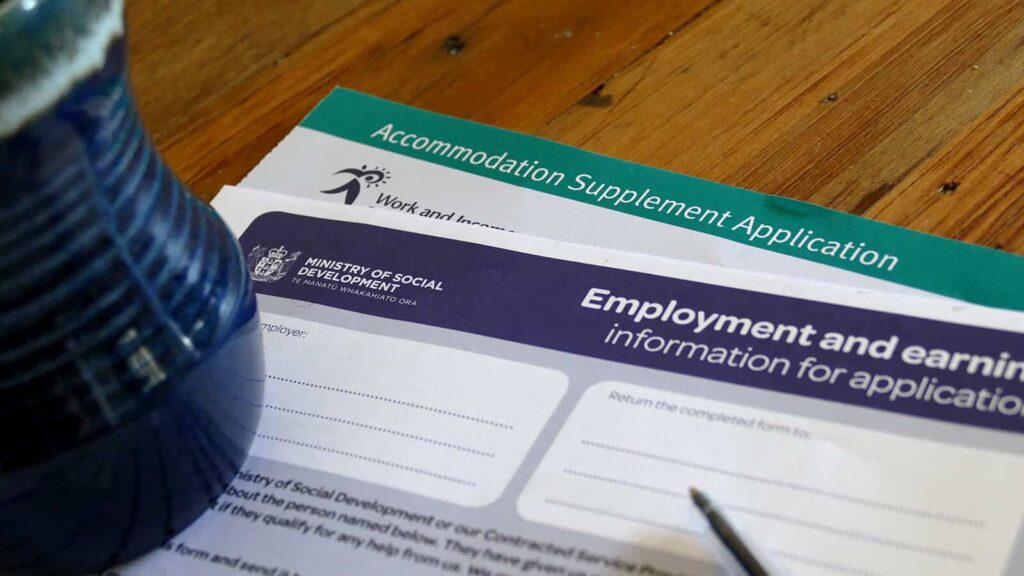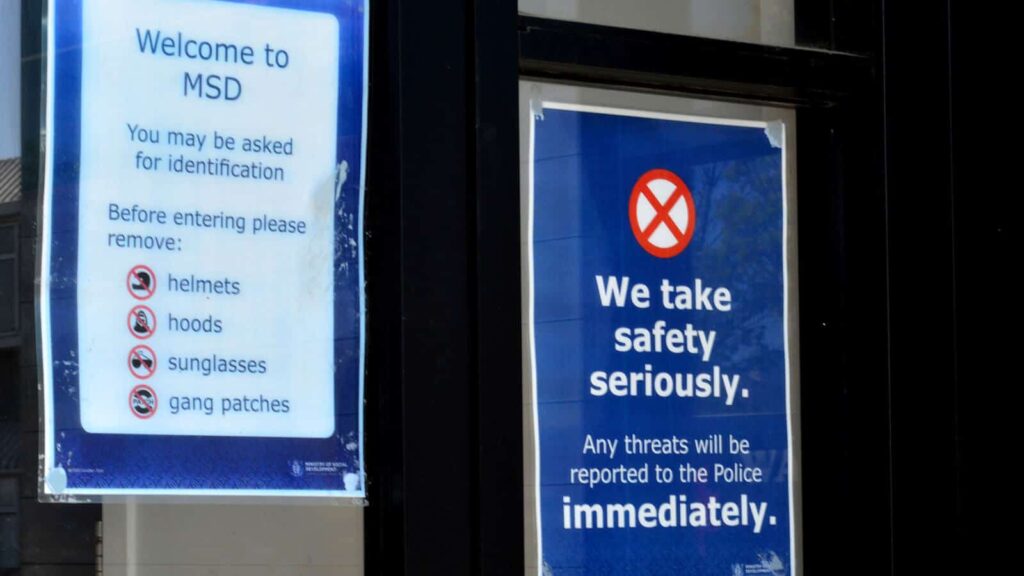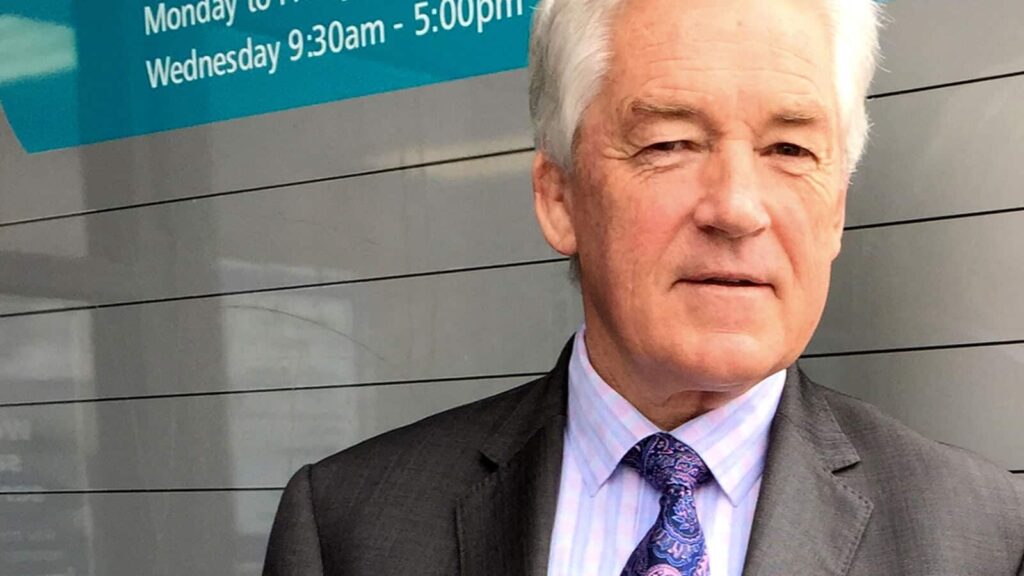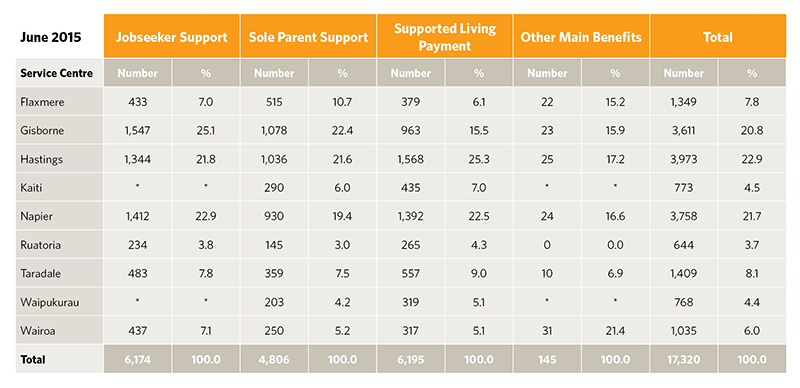But Work and Income New Zealand (WINZ) is no longer just the domain of the archetypal beneficiary: long-term, multi-generational and hopeless.
Look closer and there’s also the woman in the business suit with the plastic folder and the man with the briefcase. Because we are all one restructure, one marriage breakup, one breakdown – or more likely a mixture of these – from the benefit line.
A changing job market, seasonal or short-term contract-based employment, redundancies, the global financial crisis, mean any one of us is one foul move away from a benefit.
Despite supposed reforms and new ways of working, WINZ is still perceived at best as a process and paper-driven institution riddled with inconsistencies; at worst, a dehumanising agency robbing people of self-determination and perpetuating a perception that seeking help is shameful.
The clichés of the past have fallen away as WINZ contends with ever more complex cases that don’t follow the norm. But WINZ isn’t coping and the fall out for already stressed ‘clients’ is long waits, muddy instruction, and a lack of clarity around rights and responsibilities.
Who’s on a benefit?
Diverse circumstances lead to people visiting WINZ for help, but most fall into one of three main categories, with other smaller payments propping up their needs, including accommodation supplements and training allowances.
Currently 17,320 people receive a main benefit in Hawke’s Bay. Six thousand are on Jobseekers Support, the old unemployment benefit.
Another 6,000 are on Supported Living Payment, formerly the sickness benefit (for those with a permanent disability or a terminal illness). Nearly 5,000 are on Sole Parent Support, once known as the DPB or domestic purposes benefit. The smaller number on ‘Other’ includes Orphans and Young Parents support.
As well as attending the obligatory case worker meetings and work preparation seminars (there’s even a seminar that helps clients work out how to use the online application service), people visit WINZ if they need housing, specific help with IRD, emergency food parcels, even some forms of mental health and disability support, or are on a benefit and need help securing essentials like whiteware, furniture or work clothing.
Shaun*
Shaun is on Jobseekers Support. He’s in his mid-fifties, has three degrees and has been in the public service and consultancy all his working life. This year he came down with an illness requiring complete bed rest for several months. He was on ACC, but thinking he was well again he came off that and went back to working for his clients. But he found he could only work three hours a day without fatigue taking over and soon the work dried up.
“We are defined by paid employment and when that’s gone it’s a humbling experience and it knocks your pride.” Shaun describes going to WINZ: “It’s dehumanising. You go there and you’re a cog in a wheel, like a factory. And the people doing it, they’re part of the dehumanising because they are processing ‘units’. It’s mechanical. It’s not about caring or empathy.”
Self-perception is a big part of the picture, and this is where feelings of shame and worthlessness can creep in.
“The first thing is the whole upbringing crap. I’m male, middle-class and educated and I’m not supposed to be a beneficiary, and then it happens,” he explains.
It’s not a quick decision, it takes some weeks or even months to come to the realisation you need help.
“You don’t go immediately, you draw down and draw down. It’s a pride thing. You go when you get to the point where you’re wondering, ‘Can I pay the rent this week?’”
Shaun believes WINZ isn’t organised for the different forms of employment that people are now working within.
“I don’t think they’re geared up for consultancy and cashflow issues and factoring in the costs of self-employment. They are not well-versed in those kinds of things and there’s a lack of information.”
When Shaun goes to WINZ now he dreads the experience.
“I think ‘Oh here we go’, I know I’m going to have explain the obvious because I don’t fit into that stereotypical beneficiary box. They don’t know what to do with me.”
Shaun verbalises what all the people I spoke with felt. As much as he dislikes dealing with WINZ he also misses being a valued part of the workforce and is driven to making his current situation a temporary one.
“I miss the sense of influence and purpose. If you have some sort of goal and you have an outcome then you’re focused on making the world a better place.”
Tracey
Tracey* ended up at WINZ when her husband went to prison leaving her with four small children.
“I had no money, no drivers license. He had controlled everything and it took me a long time to realise I was in this situation. I didn’t believe it.”
“At one stage it was costing the government $58,000 to keep him in prison for one year and they were giving me $10,000 a year to raise his kids.”
Tracey worked hard to make ends meet and find some independence. She got her license and sold things – mainly his – to pay the bills including his credit card debt.
“I felt embarrassed I was at WINZ. You have a picture of what a beneficiary is and I wasn’t it. No one in my family had ever been on ‘charity’. I came from a well-rounded stable family.”
Tracey knows that consistency is a big issue with WINZ, in terms of what paperwork is required, what help is available and the approach of different case workers. And clarity around entitlements was an ongoing issue.
“They would never tell me what I was able to access until afterwards. I’d need something, sort it out and then they’d say ‘You could have come to us for that’ and I’d say, ‘It’s already paid, I’ve done it the hard way’.”
Even finding a way to get off WINZ benefits can be a trial.
“I started working two days and I was really happy to have the work and the independence but I was getting nowhere.” Once you do start work and you’re declaring income, benefits are cut. Money is also cut if obligations – like WINZ meetings and training sessions, attending child health checks, or having children in daycare – are not met.
“Every month I had to go to a meeting, but if I missed one, even if it was because they didn’t send me a letter, then my money was cut. It is a very stressful way to live.” says Tracey.
Piecing together little bits of work, Tracey is now off the benefit, but when she needed it most, Tracey says, WINZ was a lifeline.
“When you’ve watered down the milk so much it’s no longer milk, and you’ve served up noodles or beans yet again for dinner, I remember that feeling of getting some money in my account and knowing that next week it would be there again,” she says.
Christine
Christine* went to WINZ for Sole Parent Support when her marriage broke up, although it took her a while to do so. She and her ex-husband cohabitated for a number of years before she plucked up the courage to make the move.
“There are many people who are mortified to be at WINZ,” Christine says. “We are treated in a way that is either horrible or lovely, it depends on which case worker you get because they bring personal prejudice.”
Christine’s relationship with WINZ has caused her untold stress. A type of survival instinct kicks in and people find the only way to make ends meet is by working ‘under the table’ – not declaring income as it affects benefit thresholds and entitlements.
“You start thinking like a criminal. To survive – to pay your bills – you can’t be honest,” Christine explains. “They don’t make it easy and I didn’t know how to play the system.”
Some months into Christine’s dealing with WINZ the bureaucratic monster of ‘Lost Paperwork’ reared its ugly head. WINZ didn’t have a record of Christine’s child support.
“They said to me ‘What about child support?’ and I got this ‘kick in the guts’ feeling. It had been such a rigmarole getting money and there was so much paperwork and then they overpaid me thousands of dollars,” she explains. “And the whole time I’d been thinking, ‘What a great system! I’ve actually got enough to live on,’ but no.”
WINZ began sending Christine letters reassuring her that she could pay it back, at the same time as sending letters threatening debt collectors.
“Each time I spoke to them it was a different person and I had to start the story right from the beginning because they had no information on me. And it was their error! I felt like saying ‘I am not paying for your ineptitude’.”
Christine is still paying the money back through weekly installments.
Although their stories are quite different Shaun, Tracey and Christine are all well-versed in the issues with WINZ. The trends are a lack of empathy (or at best variations in the approach and knowledge of different WINZ case workers), complex cases leading to long wait times, confusion in entitlements and inconsistent information. They all have stories of excellent individual case workers, but equally they tell of an institutional culture that is disempowering, disrespectful and demeaning.
Advocating with WINZ
Others who deal daily with WINZ are support people who attend meetings between clients and case workers. They can be social workers or liaison volunteers from groups such as People’s Advocacy or agencies like prisoners’ aid or family centres.
Adrian* volunteers at an agency that works with WINZ clients. Mostly it’s a case of helping clients fill out forms. These can be so complex that they prove a challenge for well-educated volunteers, let alone for those struggling with basic reading and writing.
“The benefit form is pages long and that’s just renewing the application,” explains Adrian. “Basically you’re saying, ‘The information is the same as last time’, but you still have to fill out the forms.”
Adrian feels the complexity of forms, processes and entitlements is symptomatic of a wider system that’s struggling to cope and the result is an organisation that lacks empathy and understanding.
“It seems they treat people disrespectfully almost for the sake of it. It’s as if they choose how they’re going to treat a client, because they can actually be very helpful,” Adrian says. “Once that type of culture is entrenched in an organisation it’s hard to shake it off.”
A major issue for both the clients and the case workers is a lack of clarity around entitlements. When I visited WINZ for this story it took two case workers, a community liaison manager, the assistant service manager and the regional commissioner of the Ministry of Social Development to work out what age a child would be when its mother was expected to return to work.
“Sometimes it feels like a case worker isn’t experienced enough to know the full range of entitlements,” says Adrian. “I believe it takes over two years for a case worker to become fully proficient.”
The frustration and sense of shame felt by many has the unpleasant effect of improper behaviour. Frustration can turn to anger and even violence.
“When people are desperate they behave in ways that aren’t always socially appropriate. WINZ people don’t have enough training in de-escalation to deal with those kinds of situations. So there’s constant pressure on both sides.”
Adrian has seen clients whose situation has changed rapidly, resulting in them needing assistance often before they fully comprehend how the change has impacted their life.
“Things happen with marriage breakups, splitting property, things can really spiral downwards quite fast. Life is not as sweet and calm as it can appear on the outside,” Adrian says. “Anyone is a blink of an eye away from needing WINZ.”
Brenda* has spent hours at WINZ with clients. In her role she’s liaised on behalf of people moving from a benefit into work.
“There’s a loss of power and control. They think if they say anything they’ll get branded,” she says. “I’m an advocate, I speak up and challenge them, I’m not afraid of them.”
Except that people are. This story is riddled with aliases. From ‘clients’ to social workers and liaison workers, all were keen to tell their story but few wanted their name in print. Partly this is to protect themselves and their clients; partly out of fear that WINZ will put a black mark against their file.
“There’s two things at play: power and shame,” says Brenda. “WINZ is invested in that. It’s utterly humiliating.”
“There are families who have been on the dole for generations. Their life, their autonomy is in the hands of bureaucrats. It can be a race, culture, background issue. People who have been dependent on WINZ don’t have that sense that they have options, recourse, alternatives, basic empowerment that middle-class white people take for granted.”
Sarah* is a care worker. She too accompanies clients to WINZ meetings on a regular basis.
“It helps having someone speak on your behalf; WINZ listen more when you have someone like me or a social worker present and it can make a big difference to the help a client will receive,” she says. “I see a lot of intimidation, personal opinions of who is deserving and undeserving, different rules for different people. It’s like a mind game they play.”
Sarah believes there should be close inspection of the way WINZ approaches individual need. Questions need to be asked about whether policies and approaches are child-centric, whether people are all treated the same (even from the moment they join the line at the WINZ office), whether the WINZ culture is getting better or worse. Sarah worries that WINZ case workers bring their own prejudice to their meetings with clients, and it can be down to case workers what clients get from the meeting, rather than through a set of guidelines consistently followed.
WINZ responds
Irene Hunt is the assistant service manager in Hastings. She feels it is not always helpful to bring a support person.
“Sometimes it’s obstructive. They can take over. There are some great advocates and they can help a client. When they’re stressed they can’t hear and they don’t know what to ask.”
She has seen big changes in the type of client WINZ staff are seeing.
“It used to be third and fourth generation who have been on the benefit for a long time, but now they are far fewer,” she says. “We have a client group who were spat out and haven’t been able to get back in. Employers don’t want someone for 365 days a year, but just for when they need them.”
Irene knows that the biggest perceived challenge of dealing with WINZ is waiting times and says these are watched from Wellington through the computer system.
“On a bad day the waiting time is 45 minutes. Then there’s walk-ins. It can be a couple of hours. It’s not something we’re proud of, “ explains Irene. “Sometimes we have to see walk-ins because of need and we slot them in between. Then it can be complex case after complex case, it’s a spiral effect.”
She confirms the wait times strain staff as well as clients, “We’ve got an obligation to get through our work. We’re not being paid good money to do nothing. We’re under pressure, but the people we are working to assist are under more pressure.”
“Our case workers do their utmost. We say to them, ‘You have to do the best for what is beside you’,” Irene says referring to the client a case worker is working with at any one time. “If they [case workers] worried about the people who are waiting, they’d be constantly side tracked from what they were dealing with in front of them.
Michael Scott, WINZ case worker, says time pressures can put extra stress on staff.
“Every half hour there’s a wave of people. It’s overwhelming. It’s like standing under a waterfall and the monsoon hits,” he says.
“People come with more needs that they haven’t discussed when they made the appointment. They don’t have the right documents. There’s the very prepared and the people who hope to wing it. At every part of the process it takes time and attention.”
Until very recently, the man in charge at WINZ has been Lindsay Scott, who just retired as regional commissioner for MSD on the East Coast in October after 17 years in the role.
“There is a perception that there are lots of people bludging off the state. But they have obligations to meet, they have to be actively looking for a job and that might mean moving from job to job. WINZ knows of about 3% of jobs, we encourage people to not just sit and wait.”
WINZ does not function like a traditional ‘job centre’, although some case workers will sift through Trade Me and Seek Jobs looking for potential vacancies for their clients.
“[People] are here because that’s the option that’s open to them. Their work is finished and they need some assistance before work comes again. That is a feature of Hawke’s Bay,” says Lindsay. He talks too of the importance of clients keeping up their end of the deal, including attending work readiness seminars.
“People who want to take their money from the state and do nothing, they’ve got another think coming,” he says.
Lindsay identifies waiting times as the biggest pain point at WINZ.
“The issue is volume,” he explains. “There’s people who don’t show for their appointments, and others who think ‘We’ll just turn up and see’. You can only churn through so many. Each appointment is scheduled for 30 minutes, but they can be highly complex and clients will say ‘While I’ve got you…’.”
He knows too that the stress incurred is felt not just by clients but by WINZ staff too.
“It’s stressful for everyone and you never get used to it but it’s the working environment we’re in.”
Lindsay explains that one significant issue is the amount of changes there are to benefit allowances and obligations, and it’s constant.
“Every week there’re changes from Wellington and we all have to be up to date. Different regions have different needs but everything is centralised. We have a wad of changes this thick [indicates an inch] every week and we do staff training on those every Wednesday morning. Changes to thresholds, allowances, those sort of things.”
He also feels that much of the legislation doesn’t reflect the actual need he sees in this area.
“Part of my job is to advocate for Hawke’s Bay and the East Coast. Policy from government often doesn’t fit for Maori, especially in rural areas – the language used, the situations they come to.”
Lindsay agrees that much of what WINZ does is data driven; putting people in the correct stream and processing their information. He believes clients have a role to play in ensuring their entitlements are correct and their information up to date, from bringing all the necessary paperwork to filling in the form correctly – seemingly basic things that trip many people up.
Last choice
“People need to take responsibility for themselves. It’s all about pro-activity. If you want something, you have to go and get it,”
says Lindsay.
Yet WINZ is the last place people want to be.
They’re there out of desperation – most of them – and for very diverse reasons. The circumstances that bring them to the WINZ line are often outside their control, and from there the disempowerment, the disrespect and the feeling of shame just grows.
But beneficiaries are not mere stereotypes. They’re our neighbours, our family, possibly you or me. And so the way they’re treated – by the very people who are scooping them up when they’re at their lowest – needs to reflect empathy and understanding, intelligent approaches to individual need and ability, and a good dollop of old fashioned kindness.
With clients, case workers, support people, and MSD management agreeing that there are issues with the way WINZ operates, and with the employment environment changing too fast for the benefit system to keep up, there is certainly room to improve. The issues at WINZ are not the fault of the individuals who work there, they are a result of systematic failings and institutional discrimination, and in some ways the people who work within those processes are as much a victim as the people who rely on them for help. Recognising the situation is complex, my reporting suggests there are some ‘low hanging fruit’ options that would make life better for those on benefits and those managing their cases.
- A Plain English review of all forms and instructions.
- A conscious culture shift in the way clients are met, from their first appointment right through the process. This would involve a client-centred focus on empowering and equipping people to move from benefits into work or study, instead of an obsessive focus on statistics, data collection and micro-managing cases.
- An allowance that gives clients the opportunity to prepare themselves for work in their own way without going back and forth to WINZ with quotes on things like clothes.
- Transparency and consistency around what entitlements people have in terms of accessing the resources and funds they need.
- An electronic record that travels with the client through their WINZ dealings, and across agencies like IRD and Housing NZ.
- A client and advocate advisory panel that is consulted on general ways of working and improving clients’ experience.
* Actual names have been changed.






The benifit system needs to be changed..
1st of all ..
All woman on a benifit should be made to have a rod in there arm so they do not get pregnant again..
2nd of all
All on a benifit should require regular drug testing..
And lastly why give them cash..
All those stories sound wonderful don’t they.. but cut to the chase ..
Most on benifits will not get off them
They are dragging up out next generation teaching them to inspire to the benifit.. iv seen it.. woman so happy there kids got pregnant.. woo hoo..
Then there’s the kid getting the bendy posting on Facebook woohoo 150 bux in my bank and I did nothing to get it..
Where in the world do they have a benifit system like ours..
Our country’s in debt.. needing another loan.. but dnt worry benifit people.. us workers got you.. just kick back relax buy your booze dope and keep playing the pokies. .
You forgot they waste their money on smokes and booze aye and of course the govt takes most of that back in taxes anyway so they are sort of contributing far more than if they fed and clothed their kids. Only our govt could come up with that and it is intentional.
I cried when I read your article. In August my husband was diagnosed with brain tumours ( not curable )
My husband & I have worked all our adult lives & contributed to NZ society.
I then had to care for my husband after neuro surgery, then spending 6 weeks in Palmerston North having Radiation & Chemotherapy. Thank goodness for the wonderful support of accomodation from Ozaman House.
The most stressful part for me was having to apply to WINNS & go through the demoralising process of screeds of paper work, meetings, incorrect appointment times given & more paperwork, waiting in queues to give in yet more paperwork.IRD numbers from our tax agent ( an accountant) which I had thought is government approved, would not be accepted. It had to come from IRD. 0800 numbers were not accepted on cell phones & I ran out of credit trying to organise IRD to send our numbers to WINNS.
It was a total nightmare & I would gladly have given up persevering with the process without some supportive friends.
I have no respect for this government agency, & fully understand the desperation of people having to be put through this stressful process.
It would cost more for my husband to be cared for in a hospital or rest home situation and yet we have this continued stress while he has only months of life to live for $200 each of assisted living. We have no mortgage, so therefore we are not entitled to rates, power or any other assistance.
It’s a sad day when New Zealanders have contributed to society with full time employment to find themselves in this situation.
Winz Hawkes Bay has just about destroyed this area. Their so-called work brokers are the kind of people who would have gladly volunteered to work as guards at Auscwhitz. They are a disgrace to the region and far worse than anywhere else in the country. To them a job enquirey from an employer is wasted as a placement when they can use it to get many more unsuitable people kicked off the benefit. They get people to make C.V.s that virtually guarantee them no chance of getting a job, usually as a perk by them to get some employment start up grant money. They have no shame in what they do, they care nothing about their victims the people who actually want to work. If anyone ever deserved to suffer living on the unemployment benefit and getting perpetually harrassed by subhumans its the good people of WINZ.
This is an amazing article and I commend you for it.
I am white, middle class and through being diagnosed with a blood disorder have become unable to cope with anythng more than part time employment.
WINZ experience was diabolical and heartless…and some of the advice I received was bordering on the ridiculous. The case worker I had didn’t take any account of the fact that I was actually sick and was almost brutal. Set me back no end.
I had enough going on without that. Lost my business, my mind, my mental acuity and many family and friends didn’t want to know me. They just didn’t get it…All because of the diagnosis of an inherited condition that caused all manner of problems.
WINZ was an added nightmare……thank you for your case studies…Sadly I feel better knowing others have experienced the same…my heart goes out to them.
Note: one day I asked the person bullying me if they had actually read my Medical Certificate and could she take into consideration that I was mentally ill……she said it made no difference to how she handled the situation…….I wasn’t expcting special treatment, just some one who could tell me honestly what was expected, what I was entitled to and make sure I was paid what I was entitled to…with kindness.
Thanks for your article…
L
I work part time in job I really like and I wished it was full time and I was in winz other day and im told if next time I go in and it not full time ill be put on one of them pointless courses for 8 weeks which I have done before and no job at end yet the people running them are kept employed for next flock of sheep to go on the course.I felt great for past 6 months ive had a job yet case manager pulls me down that it not good enough but anything they suggested or ive done was no help so in theory only person that will get you work is yourself.I had a real good case manager who was real decent in Waikato so the one im chatting about now has just made me feel like crap again yet told me her son clever yet he don’t even work yet telling me what im doing isn’t good enough.I was told to reapply for jobseeker on the real me and it didn’t even have that icon on there to do it so rang online help and they had no idea either just said go back to winz again and I said well they told me to re apply online? whats the deal sort out your bluddy real me site it obvious it don’t work and just makes you pissed off the your ringing call centre no help then online realme helpline no help and Claire was name sounded like a 20 yr old had no clue how to work it.Pathetic so be more running round for me to sort it.